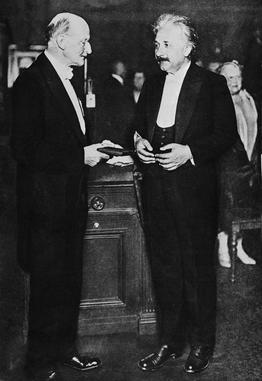Related Research Articles
The Federation of Expellees is a non-profit organization formed in West Germany on 27 October 1957 to represent the interests of German nationals of all ethnicities and foreign ethnic Germans and their families who either fled their homes in parts of Central and Eastern Europe, or were forcibly expelled following World War II.

Baltic Germans are ethnic German inhabitants of the eastern shores of the Baltic Sea, in what today are Estonia and Latvia. Since their resettlement in 1945 after the end of World War II, Baltic Germans have markedly declined as a geographically determined ethnic group in the region.

The Hitler Youth was the youth organisation of the Nazi Party in Germany. Its origins date back to 1922 and it received the name Hitler-Jugend, Bund deutscher Arbeiterjugend in July 1926. From 1936 until 1945, it was the sole official boys' youth organisation in Germany and it was partially a paramilitary organisation. It was composed of the Hitler Youth proper for male youths aged 14 to 18, and the German Youngsters in the Hitler Youth for younger boys aged 10 to 14.
The Landsmannschaft Schlesien - Nieder- und Oberschlesien e.V. is an organization of Germans born in the former Prussian provinces of Lower and Upper Silesia, and their descendants, who currently live in Germany. The Landsmannschaft Schlesien was established in March 1950 and is a member of the Federation of Expellees, and has its headquarters in Königswinter, North Rhine-Westphalia.

Manfred baron von Ardenne was a German researcher and applied physicist and inventor. He took out approximately 600 patents in fields including electron microscopy, medical technology, nuclear technology, plasma physics, and radio and television technology. From 1928 to 1945, he directed his private research laboratory Forschungslaboratorium für Elektronenphysik. For ten years after the World War II, Ardenne was one of many of the German nuclear physicists in the former Soviet program of nuclear weapons, and was honored with the Stalin Prize by the former Soviet Union.

Walter Arthur Alexander Anderson was a Baltic German ethnologist (folklorist) and numismatist.

The Max Planck medal is the highest award of the German Physical Society (Deutsche Physikalische Gesellschaft), the world's largest organization of physicists, for extraordinary achievements in theoretical physics. The prize has been awarded annually since 1929, with few exceptions, and usually to a single person. The winner is awarded with a gold medal and hand-written parchment.

The Sudetendeutsche Landsmannschaft is an organization representing Sudeten German expellees and refugees from the Sudetenland in Czechoslovakia. Most of them were forcibly expelled and deported to western Allied occupation zones of Germany, which would later form West Germany, from their homelands inside Czechoslovakia during the expulsion of Germans after World War II.

The Baltic Landwehr or Baltische Landeswehr was the name of the unified armed forces of Couronian and Livonian nobility from 7 December 1918 to 3 July 1919.

Marie Luise Kaschnitz was a German short story writer, novelist, essayist and poet. She is considered to be one of the leading post-war German poets.

Boris Meissner was a German lawyer and social scientist, specializing in Soviet studies, international law and Eastern European history and politics.
The Reichenberg Fellowship is a ecumenical Christian community based in Germany. In German it is called the Offensive Junger Christen (OJC) e.V.. It belongs to the EKD and is situated in Reichelsheim in the Odenwald and in Greifswald.
The highest award which is presented by the Max Planck Society for services to society is the Harnack Medal, first awarded in 1925. The Harnack Medal is named after the theologian Adolf von Harnack, who was the first president of the Kaiser Wilhelm Society, the predecessor organization of the MPG, from 1911 to 1930. The medal has only been awarded 33 times since 1924, including 10 times by the Kaiser Wilhelm Society (1924–1936) and 23 times by the Max Planck Society (1953–2017).
Georg Baron von Manteuffel-Szoege was a German politician.

Günter Kochan was a German composer. He studied with Boris Blacher and was a master student for composition with Hanns Eisler. From 1967 until his retirement in 1991, he worked as professor for musical composition at the Hochschule für Musik "Hanns Eisler". He taught master classes in composition at the Academy of Music and the Academy of Arts, Berlin. He was also secretary of the Music Section of the Academy of Arts from 1972 to 1974 and vice-president of the Association of Composers and Musicologists of the GDR from 1977 to 1982. Kochan is one of eleven laureates to have been awarded the National Prize of the GDR four times. In addition, he received composition prizes in the US and Eastern Europe. He became internationally known in particular for his Symphonies as well as the cantata Die Asche von Birkenau (1965) and his Music for Orchestra No. 2 (1987). His versatile oeuvre included orchestral works, chamber music, choral works, mass songs and film music and is situated between socialist realism and avant-garde.
Wilhelm Rath was a German writer, translator, bio-dynamic farmer and anthroposophist. He is best known for his research and translations of certain medieval mystics, notably the Friend of God from the Oberland, Bernard Silvestris, Alanus ab Insulis and John of Hildesheim.
Leopold Fischer (1902-1978) was an Austrian police officer and much-awarded Pictorialist, and later, Modernist, photographer.
The Deutscher Musikrat is an umbrella organization for music associations and the 16 music councils of the German federal states. It represents over 14 million music-loving citizens who, for professional reasons or as amateurs, are affiliated with the Musikrat and its member organizations. With more than 100 member associations, institutions and numerous personalities, it acts, together with its projects and support measures, as an advisor and competence centre for politics and civil society.

August Winnig was a German politician, essayist and trade unionist.
Gerhart von Westerman was a German composer, artistic director and music writer.
References
- ↑ Deutsch Baltische Gesellschaft e.V. "Die Deutsch-Baltische Gesellschaft - Wir über uns" . Retrieved 2017-01-31.